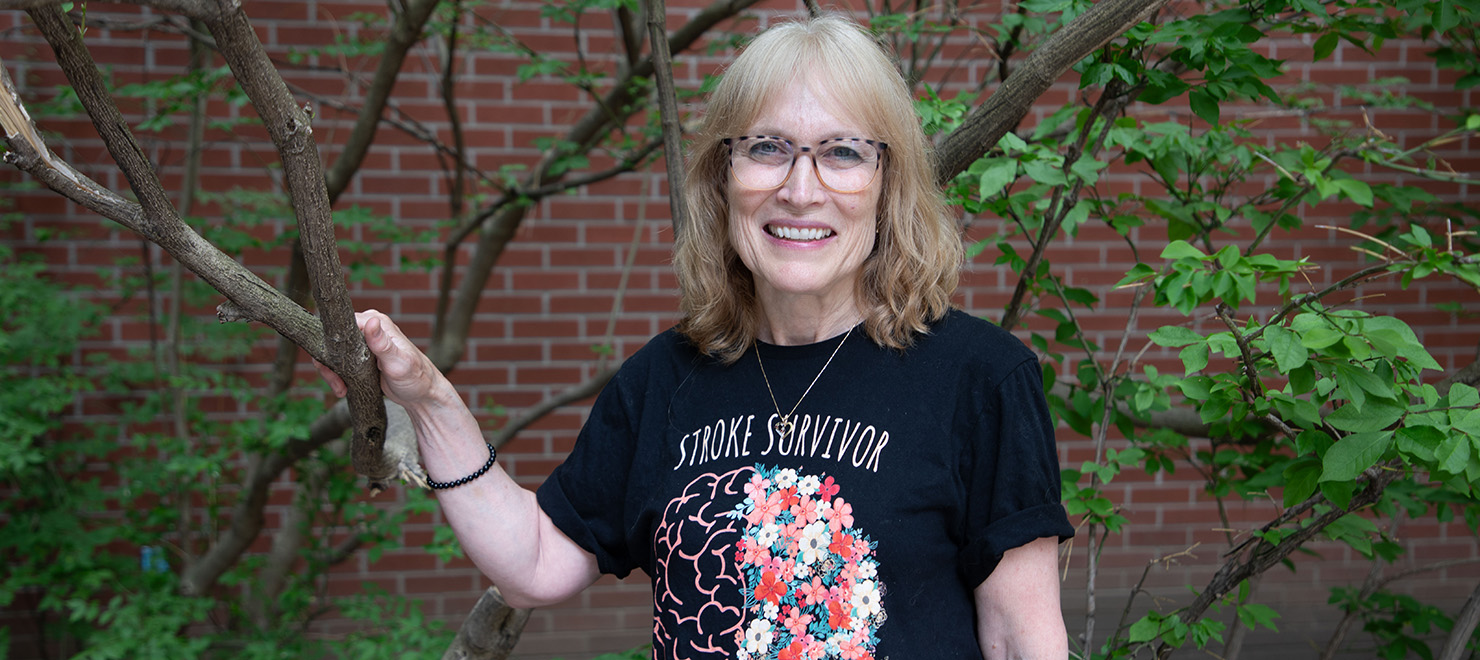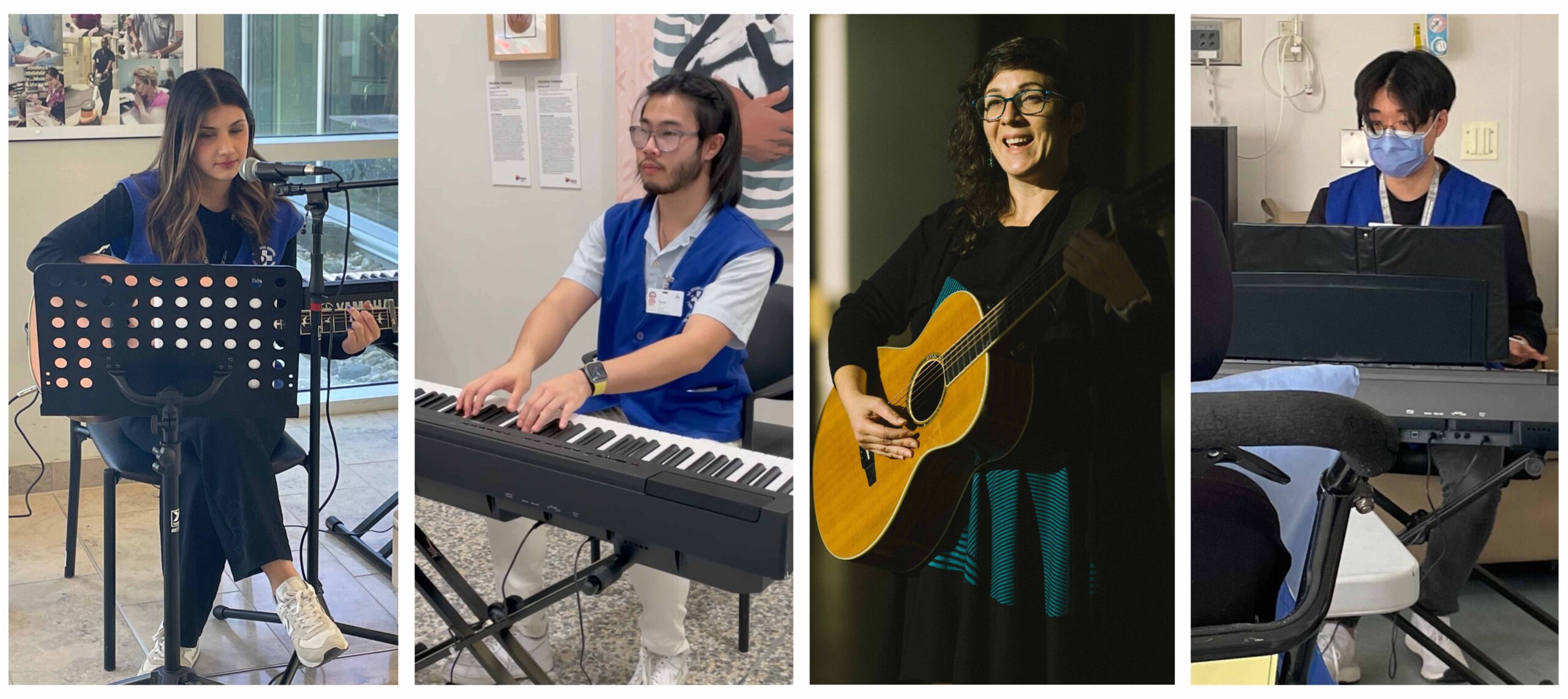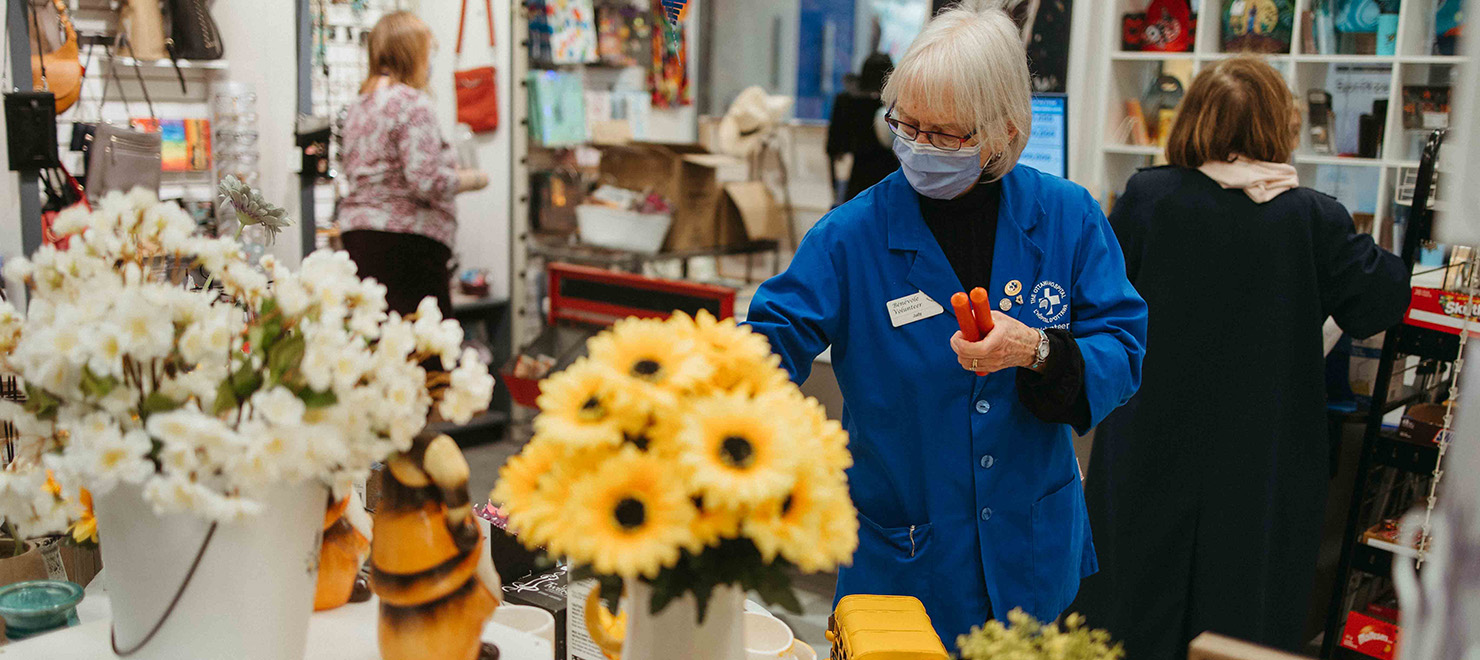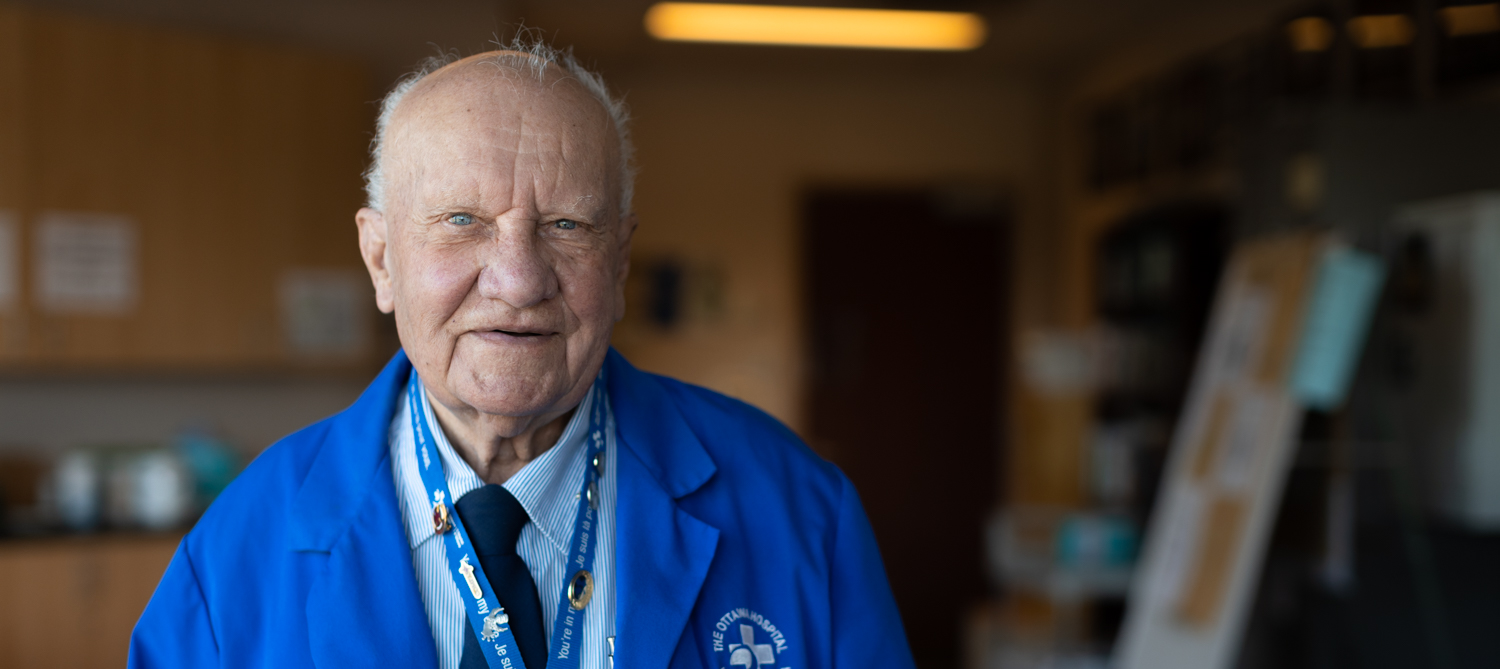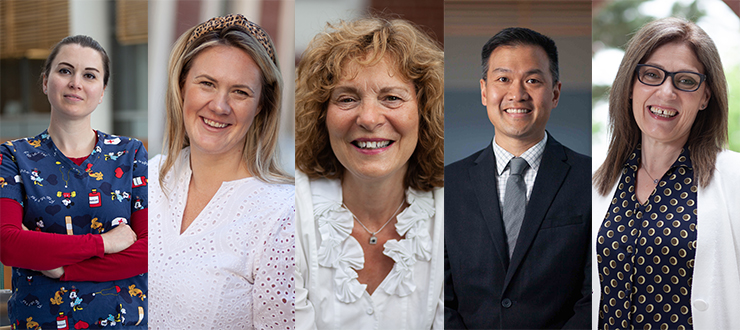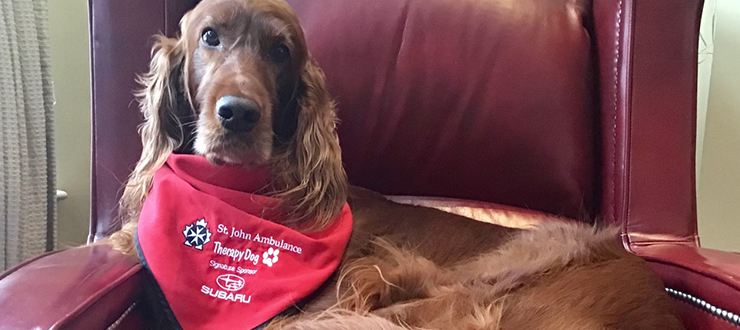
Caileigh, the six-year-old Irish setter is The Ottawa Hospital’s first virtual therapy dog.
Therapy dog Caileigh and her owner, Christine Phillips, get ready to visit patients at The Ottawa Hospital. But this is no ordinary visit – it’s a virtual one.
The Virtual Pet Therapy Program at The Ottawa Hospital began in September. Instead of appearing at a patient’s bedside, Christine and six-year-old Irish Setter Caileigh appear on a tablet attached to a specially-adapted IV pole. During the visit, patients laugh, clap and interact with Caileigh in much the same way they would in person.
There was some skepticism at first about whether The Ottawa Hospital’s Pet Therapy Program could adapt well to a virtual environment.
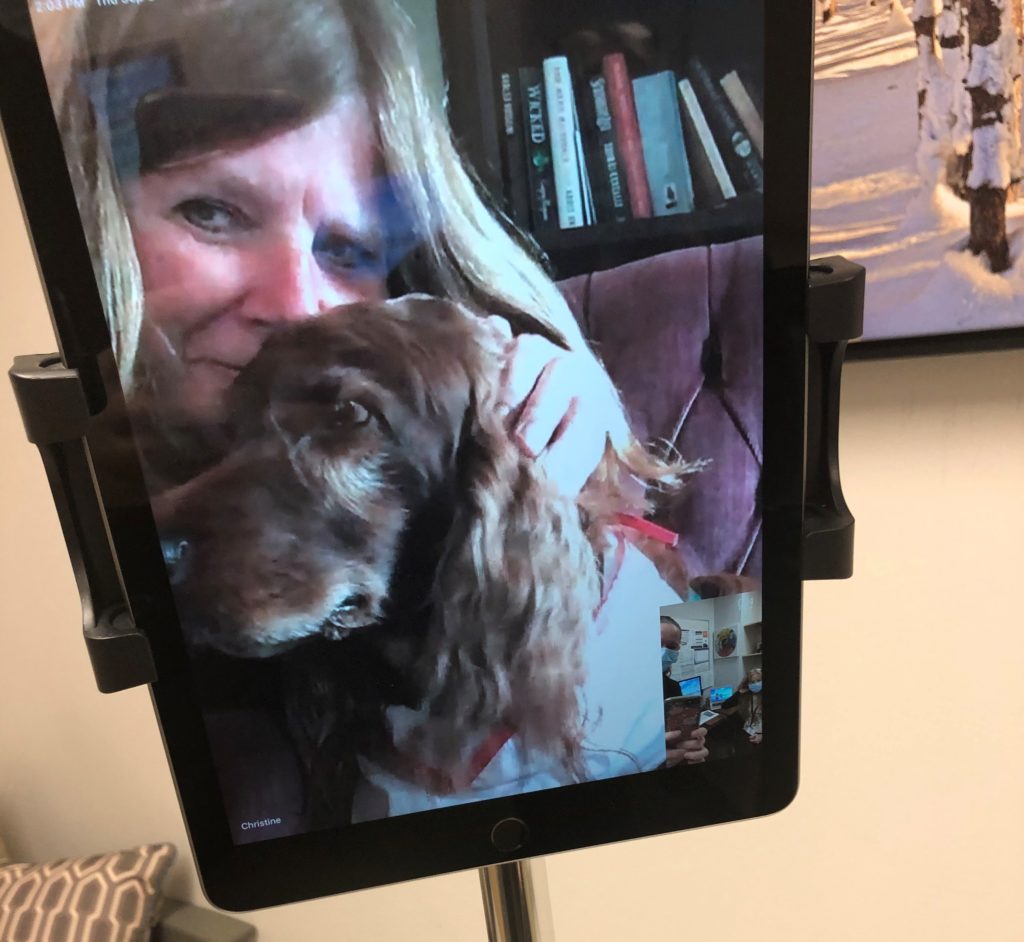
“To be honest, I wasn’t terribly optimistic about how well it would work because the therapy dog experience is tactile,” said Christine. “It’s about warmth. It’s about two-way communication between the client and the dog. And of course none of that is relevant when you have two iPads talking to each other.”
But it didn’t take long for her to get on board.
“The fact that we’ve got such a positive response from patients just speaks to how powerful that bond is between animals and humans,” she said. “It’s not as good as an in-person visit, but in the absence of that opportunity, it’s really quite amazingly effective.
Ulyana Osorio, Coordinator, Volunteer Resources, Civic Campus, helped organize the pilot project. She saw the effect it has had on patients.
Osorio recalled, “Right away patients started talking to the dog. ‘oh, you’re such a good boy,’ they’d say. They’d ask Christine questions, and Caileigh would start doing tricks. It’s a different interaction from one they would have in the hospital, but it still has so much impact. I cried. As soon as they see the dog on the screen, you can see the patient’s face light up. It was worth every moment.”
“As soon as they see the dog on the screen, you can see the patient’s face light up.”
Jette Haswell, a social worker at The Ottawa Hospital helps match patients with the volunteers. Some of the patients she works with have had a stroke or an acquired brain injury, but most have some form of dementia or other cognitive impairment.
“We found the whole thing more powerful and more meaningful than we anticipated,” she said. “It gives our patients an opportunity to reflect on their love of animals and share memories of their dogs. They are in the moment with Caileigh and interact with her. It’s a way to bring a little piece of joy to their life.”
Haswell has noticed that interacting with the therapy dog and their owner has helped more withdrawn patients come out of their shell. Seeing the dog on the tablet initiates a conversation, and gives them a break from thinking about their illness.
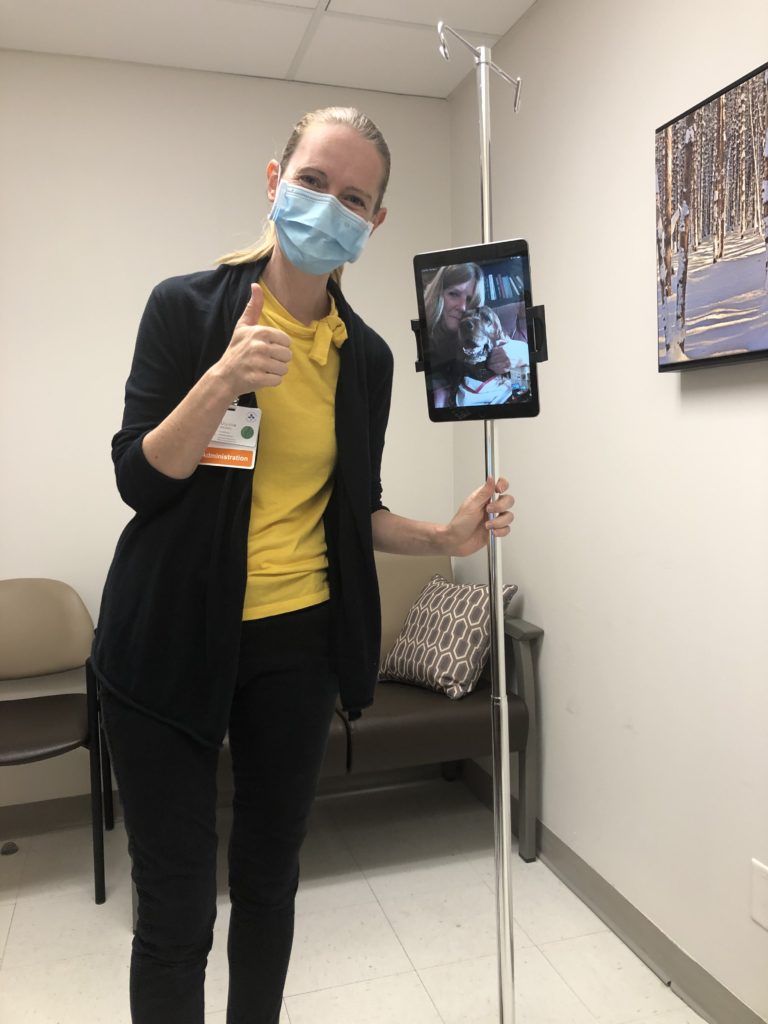
Still, the experience sometimes evokes sad emotions for the patients, and if that happens, Haswell is ready to support them.
In March, more than 1,400 volunteers were asked to stay home as part of The Ottawa Hospital’s response to COVID-19. The Virtual Pet Therapy Program is one way that some volunteers could continue delivering compassionate care to patients. Others volunteer at The Ottawa Hospital’s one-of-a-kind Virtual Information Desk.
The pilot is catching on. Suzanne Lariviere, Volunteer Coordinator, General Campus launched the Virtual Pet Therapy pilot in the dialysis unit of the General Campus.
The hope is to grow the existing program and also to continue it after the pandemic. Virtual pet therapy would be ideal for patients who are in isolation for any reason, or for patients who are allergic to dogs but still enjoy their company.
For now Christine, Caileigh and other volunteers will continue visiting patients safely from home, knowing that their efforts are making a big difference.
“All of us who do therapy dog work have beautiful, heartwarming stories about how our dogs, whom we love deeply, touched other people,” she said. “When you think that you’ve made a difference, when you’ve made an impact, there’s extraordinary value to that reality.”

Support patient care and research at
The Ottawa Hospital
You might also like…
From survivor to supporter: Peer volunteers bring hope to patients recovering from stroke
Drawing on their own lived experiences as stroke survivors or caregivers, volunteers with March of Dimes Canada’s After Stroke Hospital Peer Connections program offer emotional support to those just beginning their recovery journey. Discover the difference they’re making and learn about how you can request support for a loved one — or become a beacon of hope yourself.
A volunteer program that taps into the power of music
Studies have shown that music can benefit the body, mind, relationships and community. Musical Moments is a program where volunteers play live music to support positive outcomes for patients, visitors and staff.
These volunteers turn chocolates and stuffed animals into MRI machines
We all know that a gift has the power to bring a smile to someone’s face. But did you know that the gifts you buy at our gift shops also have the power to help us buy important medical equipment? Our shops are run by a group of fundraising volunteers and staff from The Ottawa Hospital Auxiliary. Here are some other ways their efforts help make meaningful change.
After a life-altering bike crash, this group of volunteers proves that friendship and community are powerful medicine
In September 2021, a visiting professor woke up in our ICU completely alone. He admits that he wouldn’t have made it through the first few months without support. But he didn’t have to, thanks in large part to a group of caring volunteers who came to his side during this difficult time—and have been there ever since.
After 31 years of service, Stefan Mayer will soon hang up his blue volunteer jacket
For more than 30 years, volunteer photographer Stefan Mayer has captured important moments at The Ottawa Hospital, from awards ceremonies to newborn photos. Soon to turn 97, he will leave behind an incredible legacy when he retires from his volunteer career with us later this fall.
Taking the power back: The Ottawa Hospital reflects on a year of pandemic milestones
Looking back on the past year, it is incredible what our staff have achieved in such a short span of time, from opening our community clinics to researching new vaccines. Learn about the hard work that has gone into safeguarding our community, as told by our staff both on the front lines and behind the scenes.


 To reset, hold the Ctrl key, then press 0.
To reset, hold the Ctrl key, then press 0.
